7 things you should never store in the shed — but probably are
Are you storing these common things in the shed? Here’s why you shouldn't
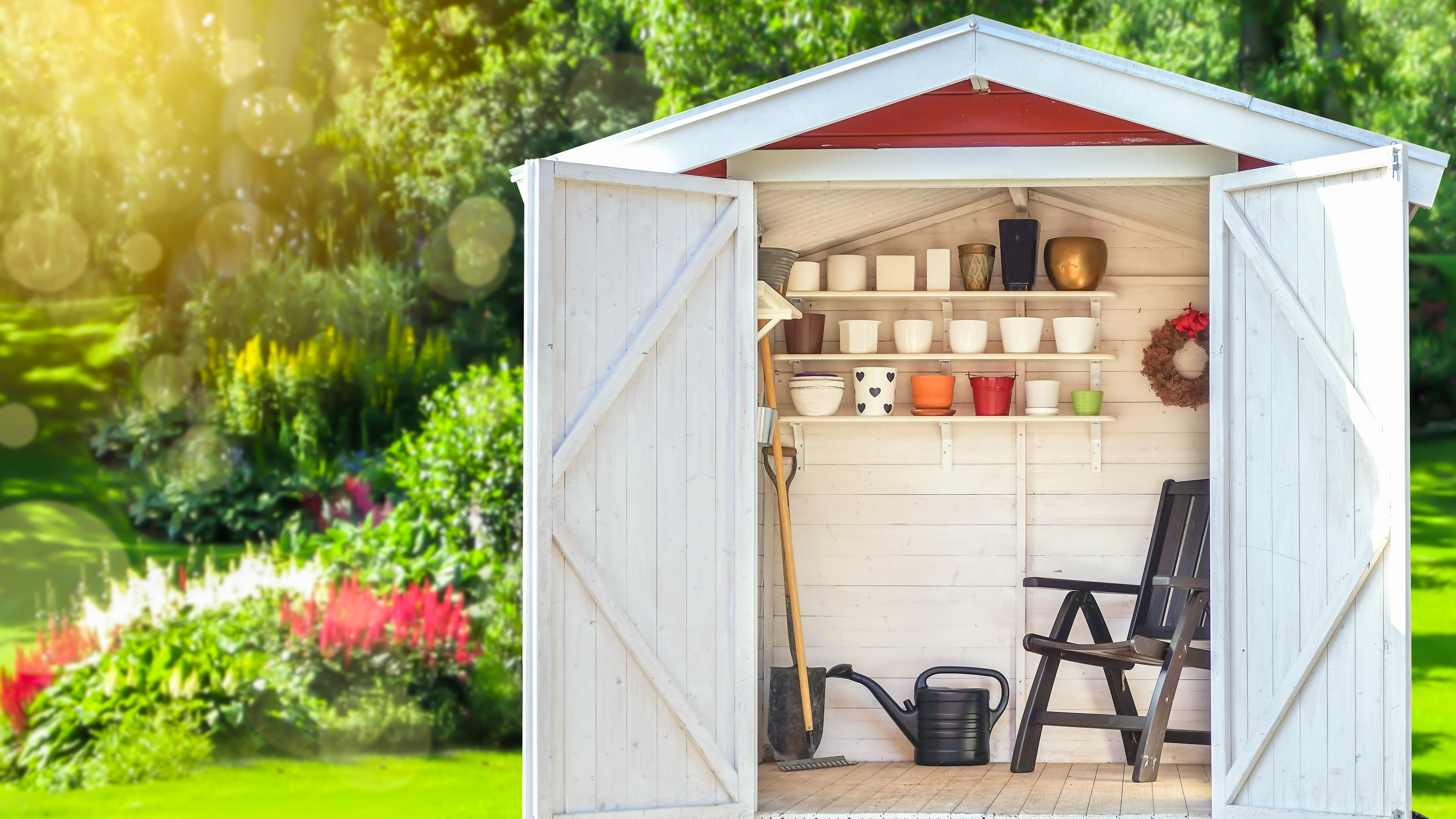
If you have a backyard or garden, the shed is probably one of the most useful storage spaces going. But while it might seem the obvious place to stash away household items and any other clutter, there are certain things you should never store in the shed.
In fact, incorrect storage will probably do more damage than good to your precious belongings. Much like the reasons for things you should never store in your garage, or even in the basement, sheds are prone to fluctuating temperatures, and humidity throughout the year.
While extreme heat can cause moisture, cold and damp conditions in the shed could also destroy certain items, rendering them useless.
Before you store anything in the shed, always make sure it’s kept well-ventilated, and properly sealed on the outside. This will prevent any leaks or moisture from getting in. Worst case: you don’t want to invite any rodents or pests into your shed!
So, before you banish things to the backyard, here are 7 things you should never store in the shed — but you probably are.
1. Canned food
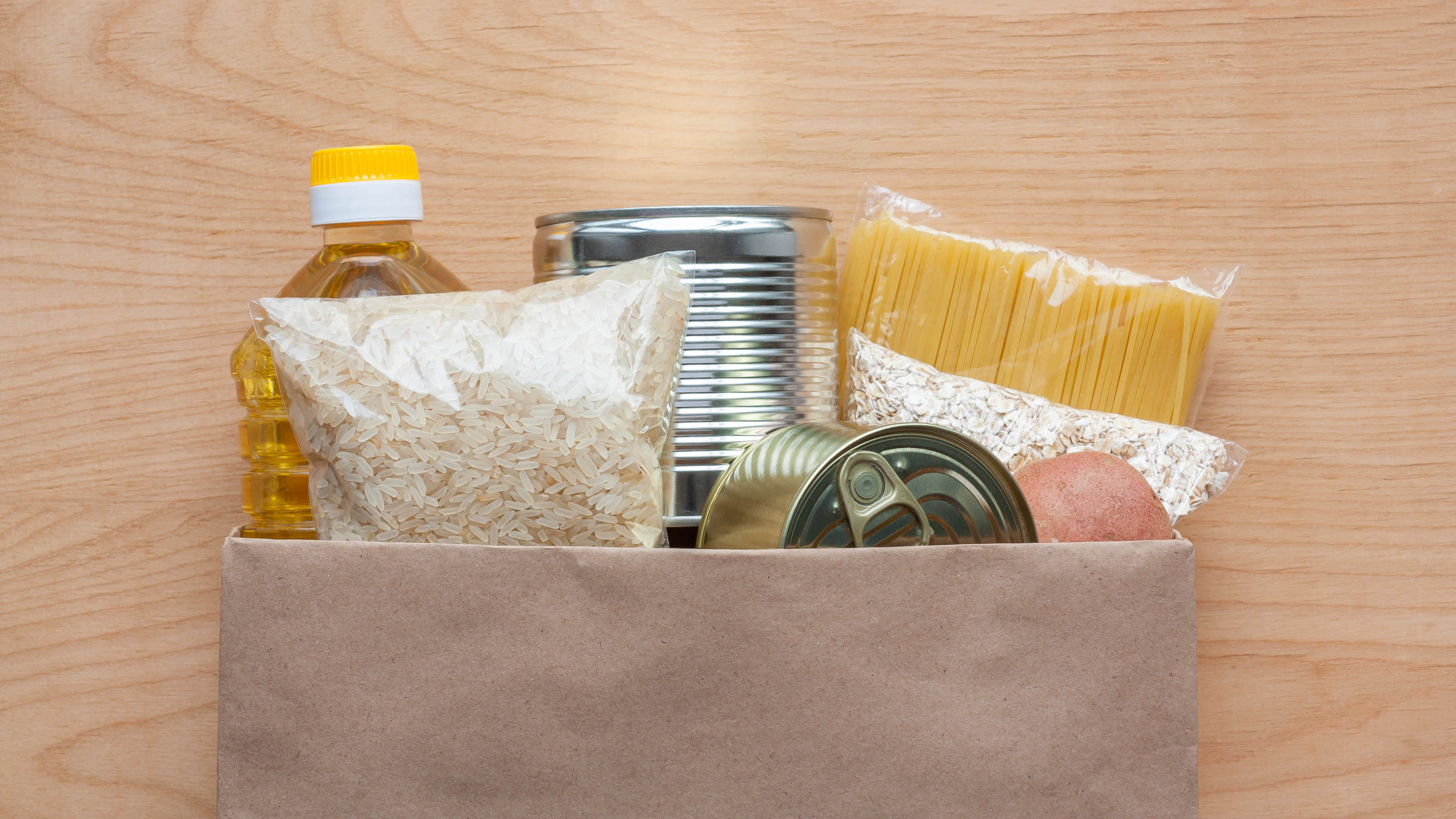
Although it’s common to buy food supplies in bulk and save money, avoid storing canned goods in the shed. Any perishables can easily spoil from humid temperatures during warmer months. What’s more, the heat will essentially cook your items before you get a chance to eat them!
In addition, any metal-type food containers are subject to rust, which can lead to holes in the container, making the food go bad. Once foods inside interact with the metal container, this will affect the taste and overall quality of the food. This is especially the case for acidic foods such as tinned tomatoes. So best avoided.
Get instant access to breaking news, the hottest reviews, great deals and helpful tips.
Always store food and drink items in sealed containers in a cool, dry place indoors. Plus, the last thing you want is to create the perfect retreat for mice or any other pests in the shed — in which case you’ll need to know how to get rid of mice and keep them out!
2. Paints and glue
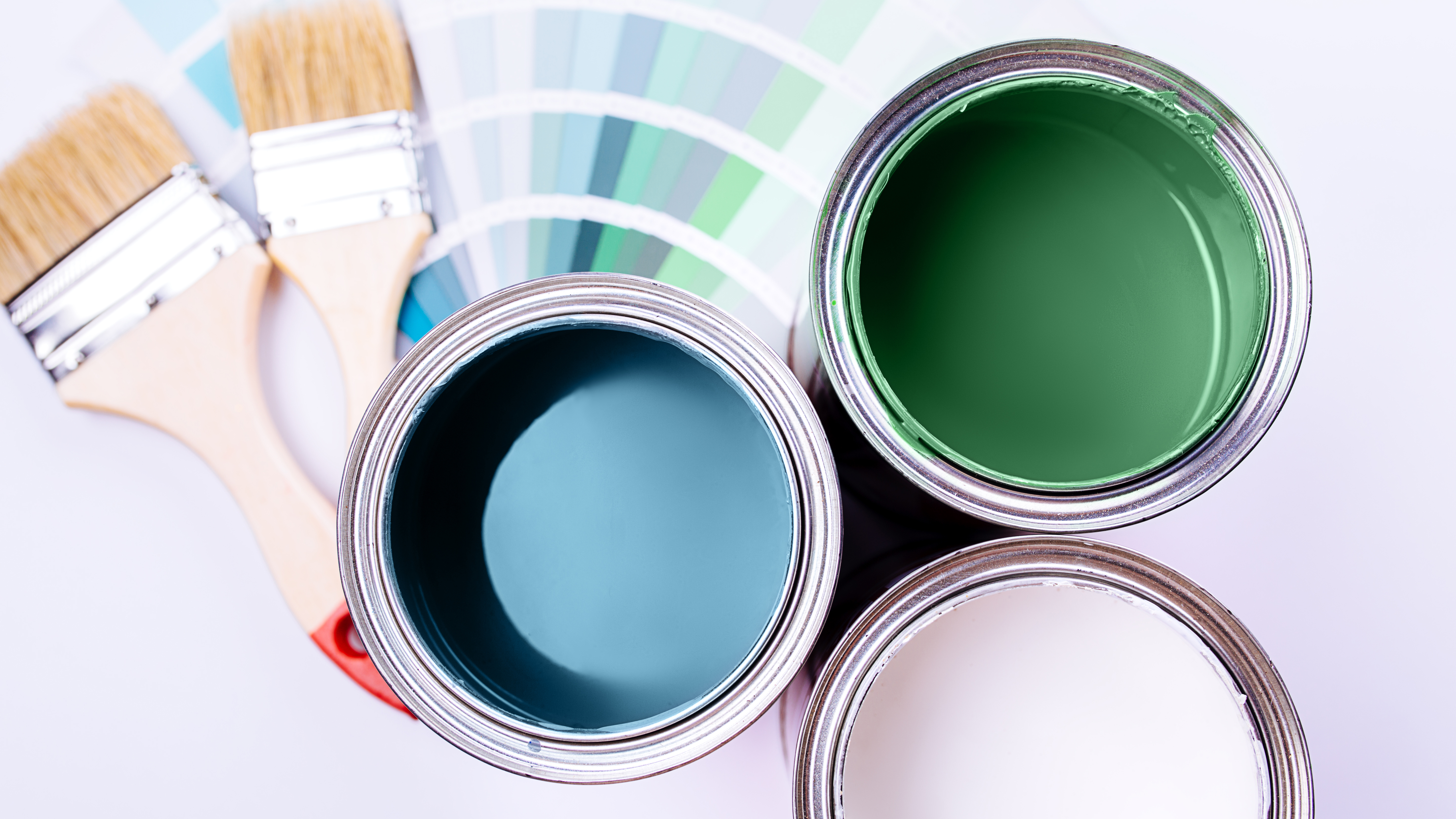
Whether you’re renovating or giving your rooms a makeover, the shed seems the ideal place to store leftover paints or glue materials. However, oil paints in particular are highly flammable, and latex paints can break down under extreme temperatures. What’s more, the particles could either freeze or separate, making them unusable — and risk ruining your home projects.
If you want to save your supplies for the next paint job, always store tins in a temperature-controlled environment such as a ventilated, secure cabinet. In any case, it’s recommended to read the manufacturer's storage guidance first.
3. Wine

If you’re a vintage wine lover, or simply enjoy hosting gatherings, avoid storing bottles in your shed. Generally, wine is a sensitive compound that can react to temperature fluctuations and can take on a metallic taste as a result.
In fact, the ideal temperature for storing wine is 55 degrees F, and should be kept somewhere dark and cool. Ideal places include your kitchen, dining room cabinets, or another location indoors that is more climate-controlled. After all, you don’t want to risk ruining an expensive wine collection!
4. Electronics
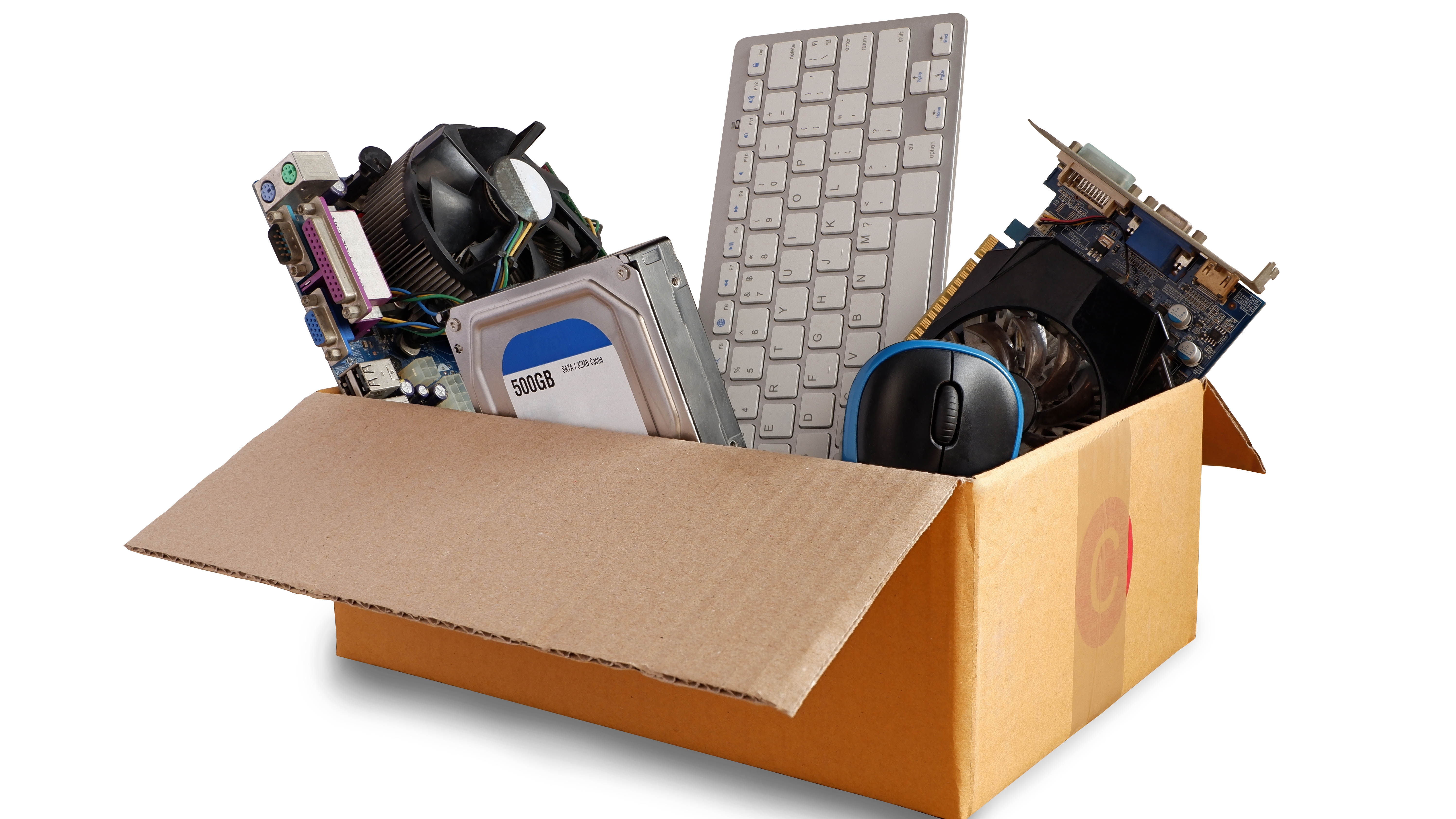
We often stash boxes of old laptops, computers, or any other electrical items in the shed, but this is a bad idea. Again, the extreme humidity can overheat electronics, create rust on the internal wiring, or even prevent them from working completely. In particular, large plasma televisions need temperature control as the screens will be affected by such fluctuating conditions — especially if there is water damage.
Instead, store old electrical items in a cool environment, or you can recycle, donate or sell online. In fact, a good decluttering will free up more space, or earn extra cash!
5. Wooden furniture and instruments
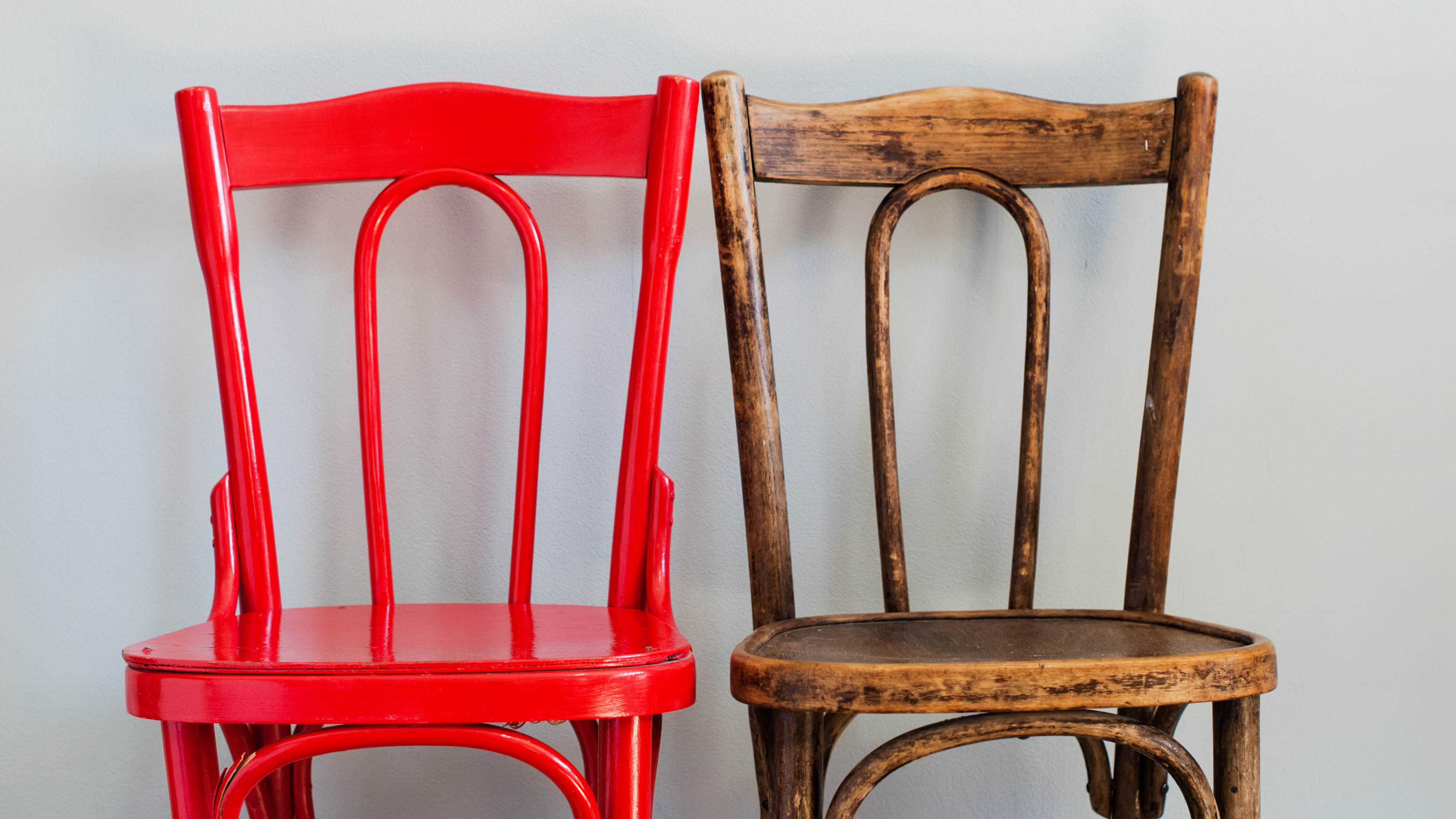
Never store wood furniture, instruments or any other handcrafted item in the shed. Wood is prone to absorbing heat and humidity, causing it to badly warp or destroy the protective, gloss finish. What’s more, if left in damp conditions, it will most likely cause discoloration. The same applies to storing leather furniture.
If you’re musical, don’t even think about storing your piano, brass instruments or guitars in the shed. Aside from rusted strings, the humidity can cause swollen pegs, and melt any glue used in the instrument’s design. Wooden items should always be kept in a well-insulated, cool environment (preferably indoors), or inside a suitable cabinet/unit.
6. Pet food
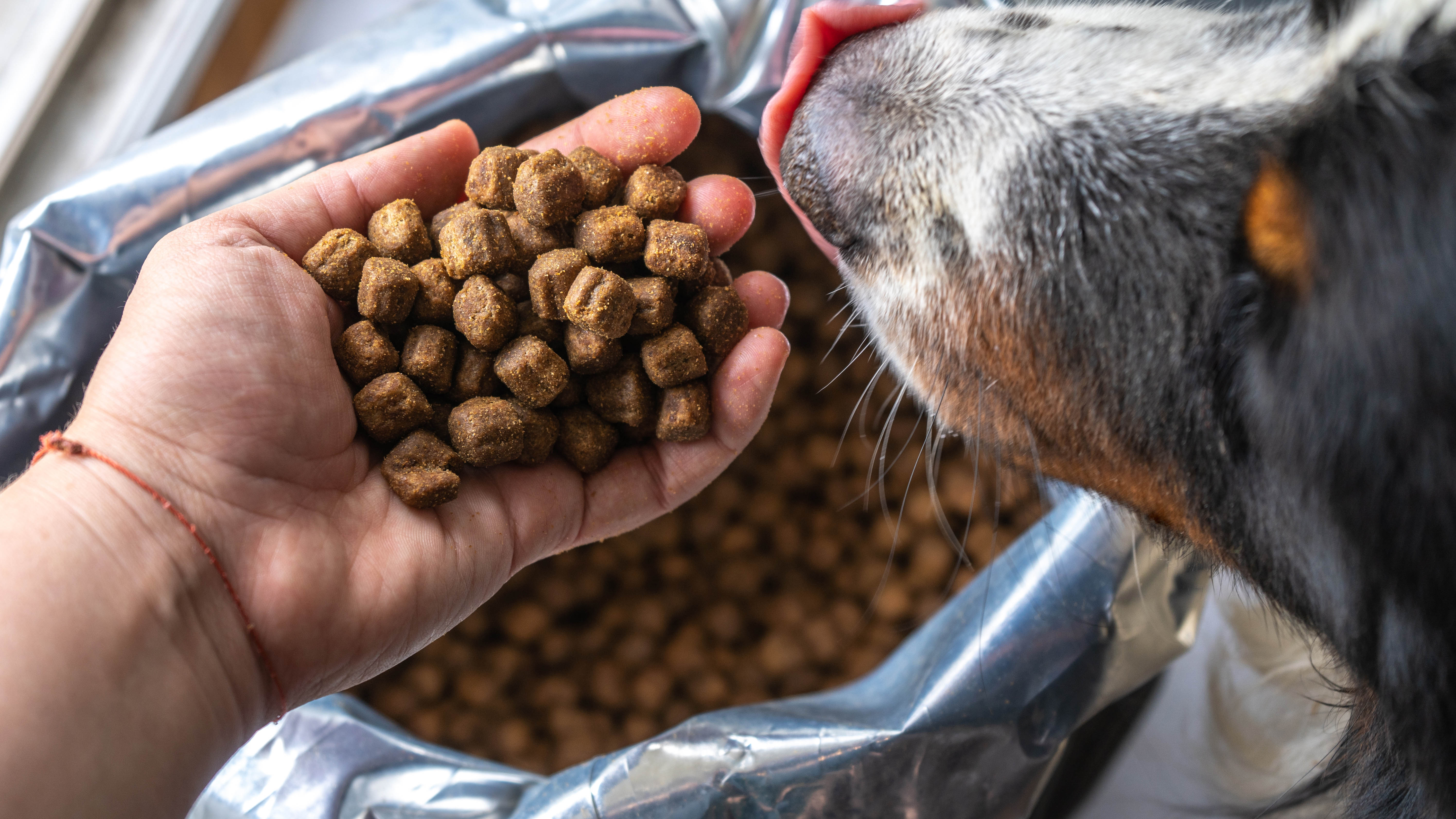
While the shed may seem like the perfect place to store excess bags of pet food or kibble, avoid doing so. Similar to storing food items, the changing temperature and moisture levels can degrade pet food, destroying the essential nutrients and oils they need.
What’s more, storing pet food in the shed might attract rodents or mice who can easily chew through paper or cardboard packaging. And the last thing you need is to encourage an infestation of unwanted pests!
Instead, store pet food securely in a rigid, airtight metal bin or plastic container, and in a cool, dry space. If you do spot rodents however, try these 7 plants that keep mice and rats from invading your home to keep those critters at bay.
7. Artwork/photographs

If you want extra space for your art collection, avoid storing these in the shed at all costs. Artwork is particularly sensitive to both heat and moisture, and needs to be kept in a temperature and humidity controlled environment.
If not, this can cause expansion and contraction which leads to warping, while moisture can create mold growth. What’s more, intense heat and sun exposure can cause discoloration, or even the paintwork to flake or crack.
If you want to preserve your artwork, always keep pieces in a dry and regulated environment for long-term storage. Before you do however, wrap and secure with a protective covering, such as a blanket, bubble wrap or felt. Then place the wrapped artwork in a plastic/waterproof bag that you can tie close, before storing in a suitable box or container.
Things that you can store in the shed
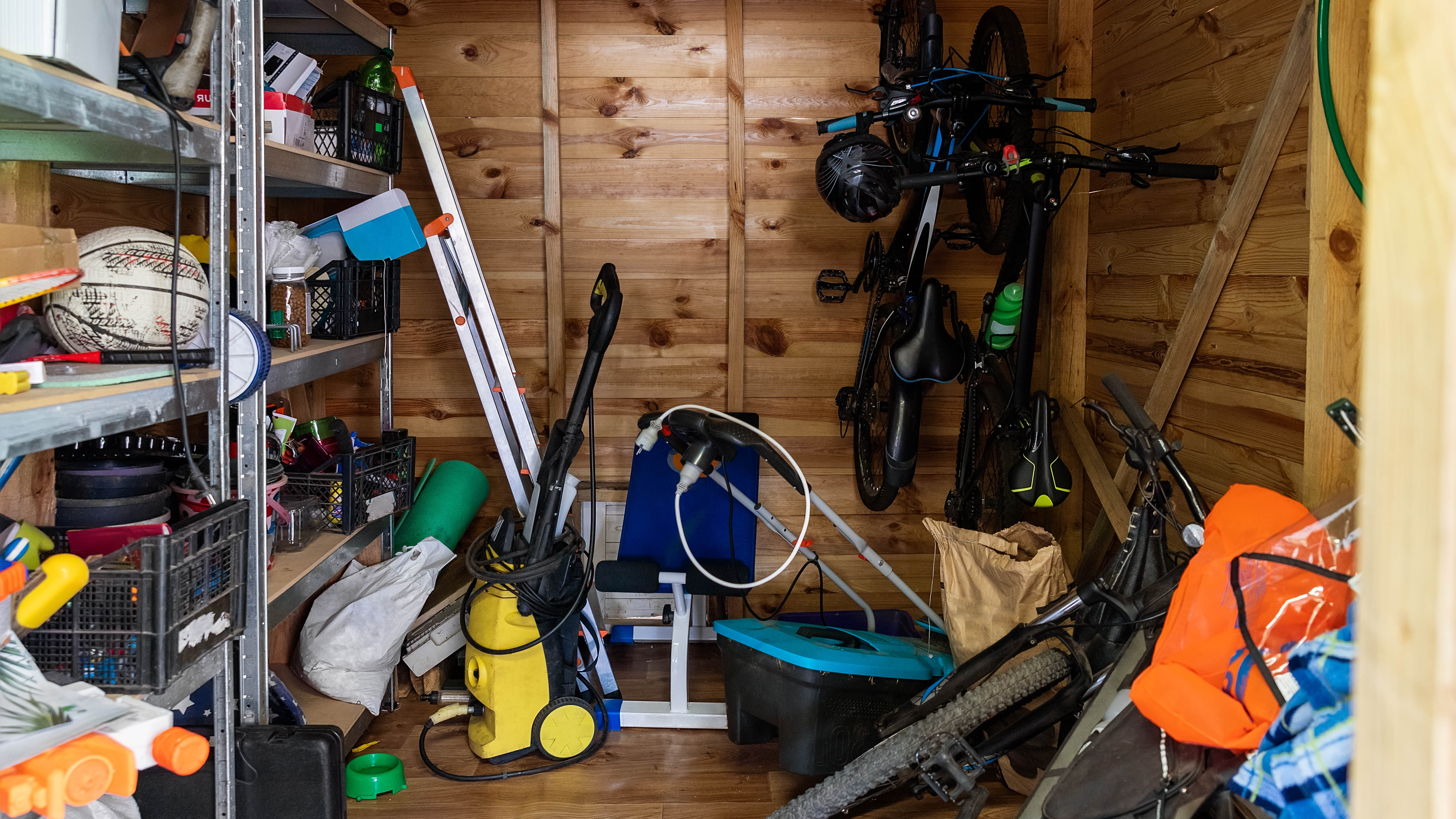
Camping gear and outdoor furniture— Camping or outdoor gear are usually durable and made from weather-resistant materials. These are able to withstand extreme temperature changes.
Lawn mowers and gardening tools — The shed is best suited for lawnmowers and gardening tools, such as wheelbarrows, garden hoses, plant pots, tools etc. Just remember to remove any batteries from power tools and place them in sealed containers indoors. This is to avoid any moisture from fluctuating temperatures.
Plastic and items — Plastic chairs, play tables or cages are better suited for shed storage. Similarly, plastic toys or other items should be durable for such an environment.
Spare cookware — Pots, pans or any other cookware are resilient to extreme temperature change and are fine to store in the shed.
More from Tom's Guide
- Also, here are things you should never store in the attic
- If your home is compact, here's how to make a small room look bigger
- Check out how to declutter your home in simple steps

As the Homes Content Editor, Cynthia Lawrence covers all things homes, interior decorating, and garden-related. She has a wealth of editorial experience testing the latest, ‘must-have’ home appliances, writing buying guides and the handy ‘how to’ features.
Her work has been published in various titles including, T3, Top Ten Reviews, Ideal Home, Real Homes, Livingetc. and House Beautiful, amongst many.
With a rather unhealthy obsession for all things homes and interiors, she also has an interior design blog for style inspiration and savvy storage solutions (get rid of that clutter!). When she’s not testing cool products, she’ll be searching online for more decor ideas to spruce up her family home or looking for a great bargain!
 Club Benefits
Club Benefits





